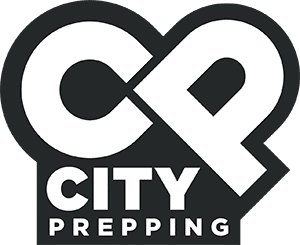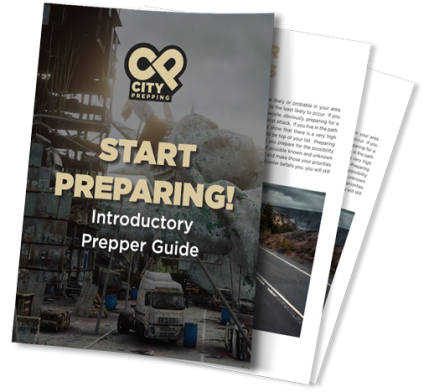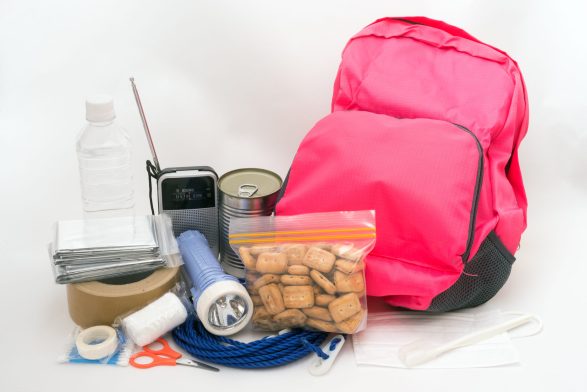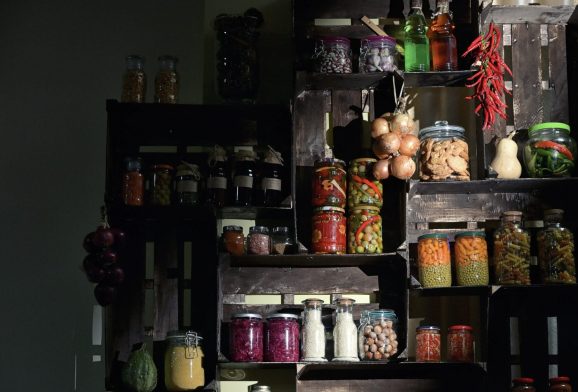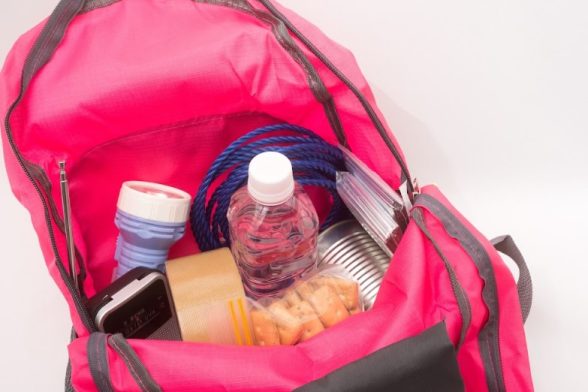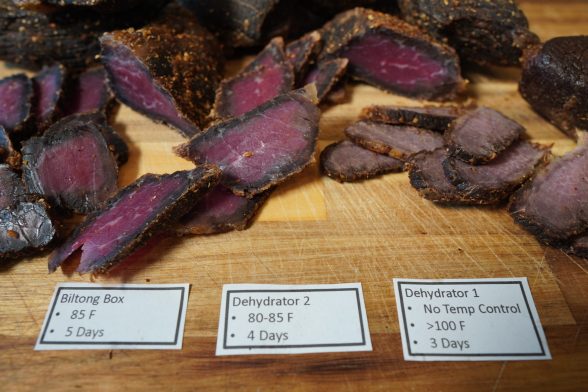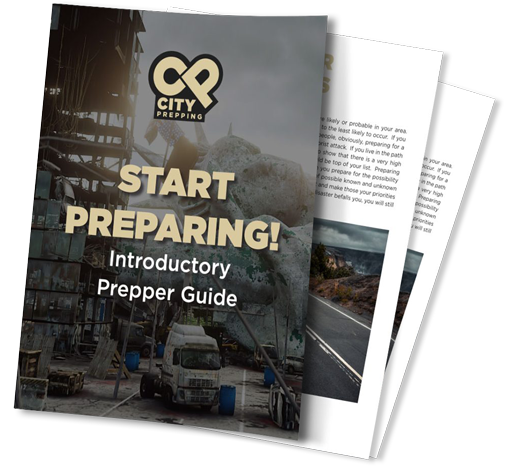 All around the world, records are being broken. The UK hit the ‘highest ever’ recorded temperature, smashing the previous record. Highest ever, record-breaking, historical, all around the world, you are hearing terms like this applied to the heatwave that is sitting over areas for more extended periods. From Shanghai to Rome to Sevilla to Oslo to Paris to Sacramento to Sapporo, the Earth is sizzling with never before seen record highs.
The longest-running temperature record is the Central England temperature data series, which started in 1659. The longest-running quasi-global records began in 1850, but we can go way back in Earth’s history by measuring annual growth rings in trees, from ice core samples, geological patterns, and the fossil record. We can determine from these when years were predominantly hot and when they were colder than average.
Taken as a whole, there is no denying that there is abundant, peer reviewed evidence that the Earth is warming, degree by degree. All around the world, the equable climates we rely upon are failing. Jet streams are slowing and shifting more towards the poles, leaving weather patterns to linger for more extended periods and seemingly stall all together. Storms are becoming more intense. Highs are getting higher, and lows are getting lower. Extreme weather is becoming more of the norm, and reliable weather patterns are being broken. It’s no longer a one-off or even a once-in-a-lifetime occurrence. It’s quickly becoming a once in human history occurrence.
OUR OWN DESIGNS
All around the world, records are being broken. The UK hit the ‘highest ever’ recorded temperature, smashing the previous record. Highest ever, record-breaking, historical, all around the world, you are hearing terms like this applied to the heatwave that is sitting over areas for more extended periods. From Shanghai to Rome to Sevilla to Oslo to Paris to Sacramento to Sapporo, the Earth is sizzling with never before seen record highs.
The longest-running temperature record is the Central England temperature data series, which started in 1659. The longest-running quasi-global records began in 1850, but we can go way back in Earth’s history by measuring annual growth rings in trees, from ice core samples, geological patterns, and the fossil record. We can determine from these when years were predominantly hot and when they were colder than average.
Taken as a whole, there is no denying that there is abundant, peer reviewed evidence that the Earth is warming, degree by degree. All around the world, the equable climates we rely upon are failing. Jet streams are slowing and shifting more towards the poles, leaving weather patterns to linger for more extended periods and seemingly stall all together. Storms are becoming more intense. Highs are getting higher, and lows are getting lower. Extreme weather is becoming more of the norm, and reliable weather patterns are being broken. It’s no longer a one-off or even a once-in-a-lifetime occurrence. It’s quickly becoming a once in human history occurrence.
OUR OWN DESIGNS
 When we build a house, we build it for multiple generations to possibly inhabit the same living space. We are finding with these shifting weather patterns that the construction of a hundred years ago or even the construction of just a decade ago can’t properly maintain a stable living climate for us. In the UK, they have a term for this– hothouse. Houses constructed to protect against cold and mild temperatures aren’t designed for the high heat, so they trap the hot and humid climate indoors, at the same time, working outside is nearly impossible. Around the world, some modern designs for office buildings built for mild temperatures to maximize natural light and infrared warmth from the sun are transforming workplaces into un-coolable saunas.
It’s not just our construction that is failing. Our very infrastructure is at risk of collapsing under the heat. Grids are strained to their maximum, trying to provide enough electricity to keep consumers’ fans and air conditioners running. In Texas, natural gas producers are taking advantage of the high price of natural gas, up more than 200% since Russia invaded Ukraine. This is due in part to the ability to ship it overseas because of laws established in 2015 under the Obama administration by shipping it to Europe to offset the reduction of natural gas coming from Russia. This leaves little left to provide cheap energy to Texas residents, who have seen their utility bills skyrocket.
At the same time, as your costs have gone up and your grids are failing, many oil conglomerates have recorded record profits. This puts people, government, and corporations at odds. Right or wrong, governments will eventually feel compelled to step in and reign in these global conglomerates. As governments strain to regulate, the real squeeze will be passed on to you, the consumer.
CROP FAILURES
When we build a house, we build it for multiple generations to possibly inhabit the same living space. We are finding with these shifting weather patterns that the construction of a hundred years ago or even the construction of just a decade ago can’t properly maintain a stable living climate for us. In the UK, they have a term for this– hothouse. Houses constructed to protect against cold and mild temperatures aren’t designed for the high heat, so they trap the hot and humid climate indoors, at the same time, working outside is nearly impossible. Around the world, some modern designs for office buildings built for mild temperatures to maximize natural light and infrared warmth from the sun are transforming workplaces into un-coolable saunas.
It’s not just our construction that is failing. Our very infrastructure is at risk of collapsing under the heat. Grids are strained to their maximum, trying to provide enough electricity to keep consumers’ fans and air conditioners running. In Texas, natural gas producers are taking advantage of the high price of natural gas, up more than 200% since Russia invaded Ukraine. This is due in part to the ability to ship it overseas because of laws established in 2015 under the Obama administration by shipping it to Europe to offset the reduction of natural gas coming from Russia. This leaves little left to provide cheap energy to Texas residents, who have seen their utility bills skyrocket.
At the same time, as your costs have gone up and your grids are failing, many oil conglomerates have recorded record profits. This puts people, government, and corporations at odds. Right or wrong, governments will eventually feel compelled to step in and reign in these global conglomerates. As governments strain to regulate, the real squeeze will be passed on to you, the consumer.
CROP FAILURES
 It’s not just our constructions and infrastructures that will fail us in the coming years. The very food we sustain ourselves with will begin to fail repeatedly as long reliable farmland is baked, flooded, windblown, and decimated. Long reliable crops will repeatedly fail year after year. What harvests are accomplished will suffer in quality, with some of it allowed to simply rot in the fields.
Our decades-long practice of mega-farms producing a monoculture lacking variance will be hard-pressed to pivot and keep pace with the changing temperatures. Farmers will not be able to change directions fast enough. Large scale meat production will be forced to downsize their herds and flocks, driving inventory down and prices up.
While this will mean shortages of food items and higher prices for some countries, it will result in famine and death for other countries.
FIRES & FLOODS
It’s not just our constructions and infrastructures that will fail us in the coming years. The very food we sustain ourselves with will begin to fail repeatedly as long reliable farmland is baked, flooded, windblown, and decimated. Long reliable crops will repeatedly fail year after year. What harvests are accomplished will suffer in quality, with some of it allowed to simply rot in the fields.
Our decades-long practice of mega-farms producing a monoculture lacking variance will be hard-pressed to pivot and keep pace with the changing temperatures. Farmers will not be able to change directions fast enough. Large scale meat production will be forced to downsize their herds and flocks, driving inventory down and prices up.
While this will mean shortages of food items and higher prices for some countries, it will result in famine and death for other countries.
FIRES & FLOODS
 Fires and floods will increase. Constant high temperatures and a decades-long drought results in drier vegetation, compacted soil, higher winds, and lightning strikes. Right now, wildfires are raging across Greece, Spain, and Italy. The fire season has only just begun in the Western United States and parts of Canada.
When the vegetation is dry, it is more apt to burn, and the soil becomes compacted. Without vegetation after a fire, water is more likely to simply run off the land rather than saturate it. So, a by-product of these record temperatures will be increased frequency and larger fires. When the rain does come, the chances of flooding are also increased.
DEATH & MIGRATION
Fires and floods will increase. Constant high temperatures and a decades-long drought results in drier vegetation, compacted soil, higher winds, and lightning strikes. Right now, wildfires are raging across Greece, Spain, and Italy. The fire season has only just begun in the Western United States and parts of Canada.
When the vegetation is dry, it is more apt to burn, and the soil becomes compacted. Without vegetation after a fire, water is more likely to simply run off the land rather than saturate it. So, a by-product of these record temperatures will be increased frequency and larger fires. When the rain does come, the chances of flooding are also increased.
DEATH & MIGRATION
 Global events shape how we live our lives. Higher death tolls from the heat will result in the need for new construction, cooling centers, and possibly in some countries, a move away from a for-profit power system. Every energy solution available will need to be applied to try and find a working solution. Still, before it is over, many will die, starve, or be forced to move.
Heat is a silent killer. It descends upon us and lingers for an extended period. It aggravates other conditions, so people don’t always die simply from heat stroke or overheating. In the recent heat waves, officials attribute 800 deaths in British Columbia to the heat, more than 1,700 people in Spain and Portugal, and on average, about 2,000 extra deaths in England are related to heat waves each year.
Currently, 30 to 60 million people are projected to live in hot areas where the average heat in the hottest month is likely to be too high for a human body to function well. The term “environmental migration” will enter into our daily discussions. Nearly a quarter of the Earth’s population, 1.8 billion people, is at risk of floods. Just two years ago, more than 40 million people were driven from their homes by continued conflict and worsening weather, and the climate has grown increasingly more chaotic even in the last two years.
Some evacuations will be temporary and sudden, allowing people to only temporarily be displaced. Other evacuations will become migrations when land becomes uninhabitable, fragile, regional ecosystems collapse, and conflicts over resources arise.
Even if the people don’t move, the animals will. Already Armadillos have moved as far north as Illinois. Sharks are following the food sources earlier along the US Eastern Coast. Countless other migratory patterns and animal migrations will occur as our weather changes for good.
A DOZEN THINGS TO DO NOW
Global events shape how we live our lives. Higher death tolls from the heat will result in the need for new construction, cooling centers, and possibly in some countries, a move away from a for-profit power system. Every energy solution available will need to be applied to try and find a working solution. Still, before it is over, many will die, starve, or be forced to move.
Heat is a silent killer. It descends upon us and lingers for an extended period. It aggravates other conditions, so people don’t always die simply from heat stroke or overheating. In the recent heat waves, officials attribute 800 deaths in British Columbia to the heat, more than 1,700 people in Spain and Portugal, and on average, about 2,000 extra deaths in England are related to heat waves each year.
Currently, 30 to 60 million people are projected to live in hot areas where the average heat in the hottest month is likely to be too high for a human body to function well. The term “environmental migration” will enter into our daily discussions. Nearly a quarter of the Earth’s population, 1.8 billion people, is at risk of floods. Just two years ago, more than 40 million people were driven from their homes by continued conflict and worsening weather, and the climate has grown increasingly more chaotic even in the last two years.
Some evacuations will be temporary and sudden, allowing people to only temporarily be displaced. Other evacuations will become migrations when land becomes uninhabitable, fragile, regional ecosystems collapse, and conflicts over resources arise.
Even if the people don’t move, the animals will. Already Armadillos have moved as far north as Illinois. Sharks are following the food sources earlier along the US Eastern Coast. Countless other migratory patterns and animal migrations will occur as our weather changes for good.
A DOZEN THINGS TO DO NOW
 That’s a lot of doom and gloom, but it’s the unvarnished truth. We can’t sugar coat this, dismiss it, or debate it any further, and we probably have to accept that the world’s leaders won’t come together and that the world’s population won’t find a solution. Yet, the Earth will go on with or without us. Here are a dozen things you should do now to make the difference between surviving, thriving, or possibly dying.
That’s a lot of doom and gloom, but it’s the unvarnished truth. We can’t sugar coat this, dismiss it, or debate it any further, and we probably have to accept that the world’s leaders won’t come together and that the world’s population won’t find a solution. Yet, the Earth will go on with or without us. Here are a dozen things you should do now to make the difference between surviving, thriving, or possibly dying.
- Get water preps in place to see you through 3-months or a year or more, even if you live in a region where water is plentiful. Establish a means to collect and channel it when it does rain. Leverage this vital, life-sustaining resource.
- Get your food preps in order enough to sustain you for at least a year. You will be able to stretch them over a more extended time to supplement the food you can acquire, but there will be more and more food shortages, scarcity, failing crops, and higher and higher prices. Food reserves will make these easier to endure through.
- Grow something. Whether that’s sprouts and herbs in your kitchen, a traditional vegetable garden, an orchard, or non-traditional foods like purslane, sunflowers, sweet potatoes, and Jerusalem artichokes, you need to rely more on yourself than on the supply chain of farm-to-table. Again, you may not be able to solely sustain yourself on what you grow, but it will make the coming shortages easier to persevere through.
- Preserve it. Learn to cook for yourself, preserve your food for longer, let nothing go to waste, and maintain a generous pantry. We have gone from root cellars and whole pantry rooms to barely a food cabinet. We have gone from only eating what we can produce to having food delivered from kitchens miles away from our own.
- Address your energy losses. Find ways to gain efficiency in your home by switching bulbs, fixing drafts, installing ceiling fans, installing light timers, redesigning air flow patterns, or whatever it takes. If you live on a piece of land, consider building a root cellar.
- Address your energy needs. I don’t know how many times in how many different ways I can tell folks the grid is going to fail them sometime very soon. Consider a solar backup battery system, small or large. Understand what you need to run and what you can do without. Make sure your critical systems continue to run, and you can function through a long period without power.
- Know your history. Understand the historical record of your area. Was there a great flood in the region one or two hundred years ago? Understand that will happen again. What was your community’s response to the heatwave and drought many experienced in 1976? Is your municipality likely to tell you to let your lawn die, as many did back then, to conserve water? Understanding the past will help you avoid the obstacles of the future. You will be able to pivot ahead of the masses.
- Get local. Get to know the people producing food in and around your community. Understand the local sources of food by visiting the farmer’s market. One of those smaller food producers uses a greenhouse or has too many eggs. Make those connections now for when you genuinely need them after the supply chain decays further.
- Learn a skill. Watch the practical videos on this channel or others and commit to learning one new skill this month you can put into practice. Learning how to make soap or tie a fishing knot may seem like a twee hobby right now, but it might just prove critically valuable for the future.
- Learn to forage. There’s more food out there than corn, oats, wheat, and barley. There are thousands upon thousands of edible plants and quite a few that could kill you as well. Know a few of them that won’t and learn how to sustainably use them from your environment. Hopefully, you will never need to survive on them solely, but they will supplement your food sources now and help you to understand at the ground level how your environment is changing from year to year.
- Plan your escape. Understand the threats you face and make sure you have a plan to get out to a safer location should the waters ever rise or the fires blow in your direction. Don’t put this off, as your survival will depend upon the planning you do now.
- Build a bug-out bag and an everyday carry bag. Make sure that when disaster does strike, you are minimally prepared and equipped with the right tools to get you through. You can argue about the clouds on the horizon or grab your bag and climb into your ark. The choice is yours, but you must now choose what you will do later to be prepared.
